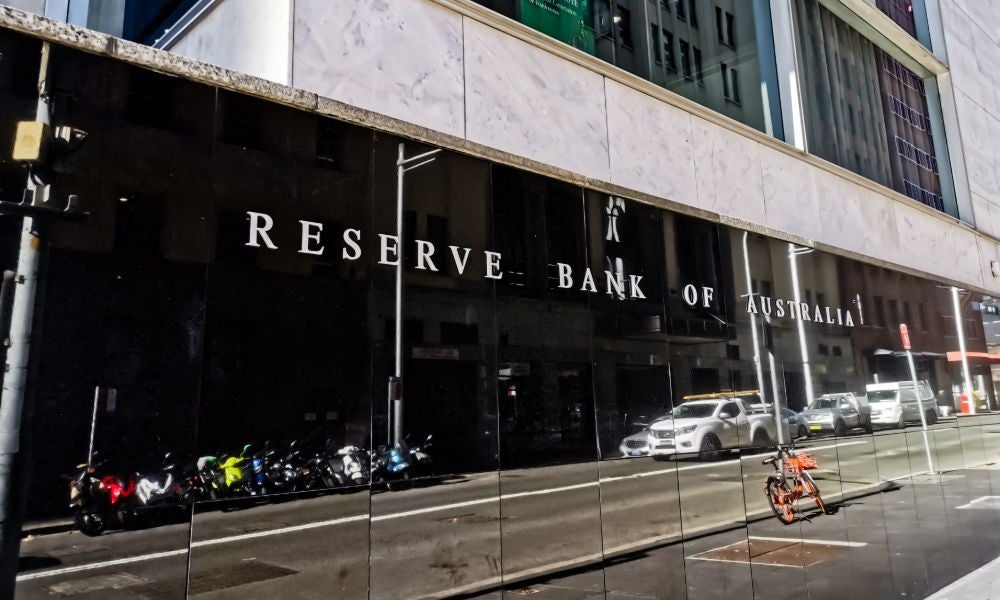Richard Farleigh’s top business tips for entrepreneurs
From studying at UNSW Sydney to managing hedge funds and backing startups, Australian investor Richard Farleigh shares key lessons behind his business success
Richard Farleigh knows better than most what it takes to succeed in business. His journey to wealth and success has been far from linear, shaped by significant personal struggles in his early years. Born in 1960 in the rural town of Kyabram, Victoria, Mr Farleigh grew up in the Australian foster care system. Despite a challenging start to life, he has gone on to become one of Australia’s most well-known entrepreneurs, known for his sharp business acumen and appearance on the BBC show Dragons’ Den.
“My father was an itinerant labourer. The family used to travel up and down the eastern states of Australia, where he would be sheep shearing and fencing. Eventually, I was the eighth of 11 children, and we were living in poverty,” he recalls, speaking to BusinessThink.
Read more: Do ‘contrarian’ entrepreneurs hold the key to innovation?
The situation drew the attention of the child welfare authorities, and Richard and his siblings were taken into care. He was sent to the notorious children’s home, Bidura, placed with a foster family in Sydney, and didn’t see his parents or siblings again until his 20s. Mr Farleigh developed a strong drive to succeed and prove himself. “It gave me a lot to prove. When you’re trying to prove people wrong, it’s very powerful. I was put into a backward class, a slow-learning class. I was clearly traumatised, and I didn’t really speak very much until I was 10. But I was good at numbers and reading, so gradually, they put me back into mainstream schooling,” he says.
By 2006, Mr Farleigh was ranked 876th on the Sunday Times Rich List with an estimated net worth of £66 million (A$128 million). He now lives in London and continues championing creative problem solving, self-improvement and calculated risk-taking.
How Richard Farleigh built his fortune
Mr Farleigh says his studies at UNSW Sydney played a key role in developing the skills he later applied in his career. Reflecting on his time as an economics student, he says he probably worked harder than most students his age.
“I left the care system at 18 and with no money or support, full-time university was not an option. By topping an aptitude test, I got a job at the Reserve Bank of Australia, the central bank, and studied at the University of New South Wales in the evenings. It is the hardest I have ever worked, because it really is quite hard when you’re working from eight in the morning till 4:30 and then head out to Randwick to do three hours of lectures,” he says.
Luckily, all of his hard work paid off, and his efforts were quickly recognised. “Because I got good results at uni, life changed dramatically. I was awarded a full-time scholarship from the RBA to finish my honours degree full-time. Suddenly, instead of being poorer and working harder than the other kids, I was getting paid to go to university,” he explains.

In the early 1980s, he graduated with first-class honours in economics and econometrics, further solidifying his passion and skills in finance. However, Mr Farleigh says he still values the connections he made during his time at UNSW Sydney. “I’m still in touch with my thesis supervisor and still have connections with the university,” he says.
After completing his studies, Mr Farleigh entered the complex world of finance, building his wealth through early work in derivatives, strategic investments, and a successful career in hedge fund management. “I was working with derivatives when they didn’t really exist, and computers didn’t really exist as general tools for people. I was doing a lot of maths, working out derivatives deals on pen and paper – if you made a mistake, you could lose a bit of money,” he recalls, highlighting the high stakes and meticulous precision required in his early career. So I went from having no money and being the poorest kid, to being a multi-millionaire by the time I was in my mid-20s,” he says.
Retiring at the age of 34 in 1994, following a highly paid stint running a private hedge fund in Bermuda, Mr Farleigh relocated to Monte Carlo, ready for a change after years of intense, screen-focused work in finance. He began investing in small companies and UK startups, expanding his focus beyond markets to early-stage ventures.
“When I was 34, I retired. I might have been one of the highest-paid hedge fund managers in the world in 1993–94, and if I’d stayed, I’d probably be a billionaire now. But I walked away because I wanted a change in life,” he says.
Read more: The art of valuation: how to price your startup for investment
During this time, he also lived in Bermuda and Monaco – experiences that immersed him in global financial hubs and broadened his perspective as a private investor. In 1999, he invested £2 million (A$4.1 million) to transform the former French Embassy in London’s Portman Square into Home House – a luxury private members’ club that blended his business interests with his growing passion for lifestyle ventures.
“Business is harder than finance,” he says. “In finance, if I was wrong about something, I usually knew exactly what I was wrong about. In business, you can be wrong, and sometimes you don’t even know why. You create a product which you think is really good, the price is good, but it just doesn’t sell.”
Great ideas vs execution – what drives success?
Richard Farleigh has invested in over 100 companies across various sectors and industries. Notably, he has backed ventures such as Net-A-Porter, Reggae Reggae Sauce, Home House, and IndexIT. Reflecting on these experiences, the former Dragons’ Den star offers clear and hard-earned advice for budding entrepreneurs.
“If you’re not trying to get better at something, you get worse at it. You can’t say, ‘I’m good enough.’ You have to continuously try to improve. You just have to maximise your chances,” he says.
Mr Farleigh also says self-motivation and seeking intrinsic validation have been key to his success. “I was motivated because I was told I was stupid, so I wanted to prove to myself that I wasn’t stupid. So I’m proving to myself; I’m not that fussed about what other people think all the time. You need some headstrong – not arrogance – but you want to impress yourself, not just other people.”
“There is no such thing as a lazy, successful entrepreneur. You meet them and they’re up at six, or they’re up at three in the morning, or they’re thinking about it all the time. It’s passion, that’s the ingredient,” he adds. “I’ve seen entrepreneurs of all ages and genders. The single most important ingredient, which probably explains 80% of performance, is motivation and work ethic.”

He also believes that a little dose of optimism is essential. “Successful entrepreneurs are normally mildly optimistic. If you think you’ll roll a six every time, you’re over-optimistic. But a little bit of optimism helps you have the drive.”
A key misconception Mr Farleigh often challenges is the overvaluation of ideas on their own. “Ideas are worth nothing. A poor manager can mess up a great idea, and a good manager can almost make a bad idea work. It’s all about management and execution. One hundred percent,” he emphasises.
“I’ve seen hundreds of business plans, and I’ve only seen one or two actually get achieved. Everyone underestimates how much money it costs and how long success takes. Try to be creative, try to think a bit differently. There is no magic formula; you just have to work hard and keep thinking.”
How to make the most of your resources – and your effort
Practicality and resource management are also essential for entrepreneurs aiming for sustainability and growth. “One of the 47 business strategies I talk about in my book, Humble Stumbles, is that most businesses fail by the money running out too early. If they run out of money at a normal time, that’s fine because they’ve tested an idea.
“But if they’re too confident and spend the money too quickly, they’ll run out before they’ve tested the idea – it’s like doing an experiment in the lab and the lights go out before you finish,” Mr Farleigh explains.
Subscribe to BusinessThink for the latest research, analysis and insights from UNSW Business School
So, how should entrepreneurs approach risk and uncertainty in their ventures? “Risk is the price of business. I don’t like risk – I try to minimise risk. My job was always to minimise risk for a certain outcome. All the time you’ve got to think, ‘Okay, if that fails, what’s next?’ Managing risk means understanding risk,” he says.
His approach to evaluating business potential is both clear and effective. “I assess every investment across three criteria: disruption, discovery, and defence. “How disruptive is your new product or idea? How much is it going to cost to discover if it will work, and how quickly can you discover that? Finally, how defensible is your idea against competitors?”
In addition, he suggests knowing what your drivers and motivations are. “I’ve never been that motivated by money. It’s always been aligned with my passion and interests. Wealth alone isn’t the driver – it’s the challenge and strategy that keeps me engaged.”
His advice to others is to consistently do quality work, even if recognition is slow. Sooner or later, he says, the right people will notice. “It might not be this year, it might be next year, but sooner or later, you know, someone will notice that you’re good. Just do everything you can really, really well – you never know who’s watching.”
